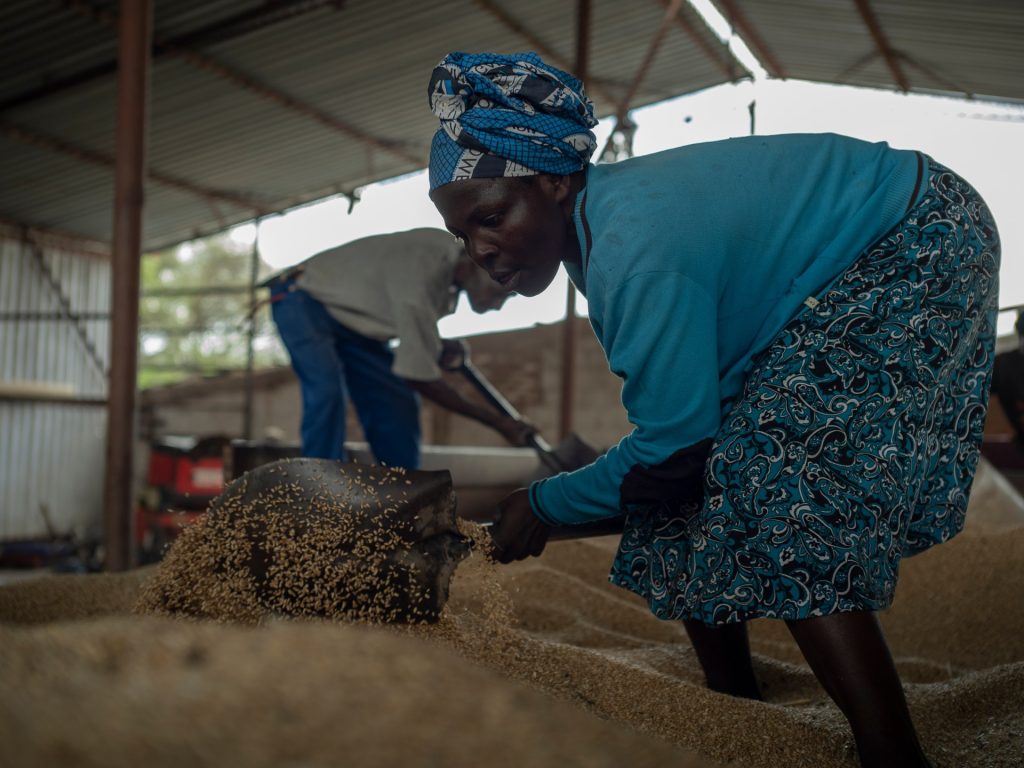On February 7, the White House cut aid to South Africa, citing a nonexistent threat to white farmers from government land expropriation. To see what might lie beyond Trump’s executive order, South Africa need only look north. Zimbabwe’s economy has been crushed by sanctions imposed after redistributing colonial-era farmland. And despite efforts to placate the development establishment, it appears that Washington prefers the country to dangle, like a corpse in a gibbet, lest other countries start getting ideas of their own.
In July 2020, in the teeth of the COVID-19 pandemic, Zimbabwe agreed to pay $3.5bn in compensation to approximately 4,000 white settler landowners for property redistributed during land reforms. This sum, five times the size of Zimbabwe’s May 2020 COVID stimulus plan, was pledged at a time when the United Nations warned the country was “on the brink of man-made starvation”. The deal came after years of pressure, with Zimbabwean officials hoping it would persuade the United States to lift the punitive 2001 Zimbabwe Democracy and Economic Recovery Act (ZDERA) that has blocked the nation’s access to international loans and assistance for two decades. Yet Zimbabwe lacked the funds to pay, and ZDERA remained.
The conventional narrative portrays Zimbabwe’s land reform as reckless expropriation by the despotic Robert Mugabe, leading to economic collapse. This version rewrites history. During British colonisation, Africans were prohibited from owning land outside “native reserves”. By the mid-20th century, 48,000 white settlers controlled 50 million acres (more than 20 million hectares) of prime farmland, while nearly a million Africans were confined to 20 million acres of largely infertile land – an injustice that fuelled Zimbabwe’s liberation struggle.
The 1979 Lancaster House Agreement, which ended white minority rule, restricted land reform to market transactions for a decade, ensuring colonial-era land ownership persisted. Despite this constraint, Zimbabwe made strides in human development in the 1980s. But by the end of the decade, the World Bank and the IMF imposed an economic structural adjustment programme, slashing public spending, removing subsidies, and privatising state enterprises. The result: mass unemployment, degraded services, and deepening poverty.
By 2000, facing growing domestic pressure, Mugabe’s government began compulsory land redistribution. The programme had flaws – inadequate support for new farmers and insufficient resources to rebuild agricultural supply chains. Yet, contrary to disaster narratives, thousands of landless Zimbabweans benefitted while a small elite of white settlers lost their privileged status.
The international response was swift and punitive. When the US Congress passed ZDERA in December 2001, it was explicitly presented as a response to Zimbabwe’s land reform programme, framing Zimbabwe’s actions as a threat to US foreign policy. The United Kingdom, the European Union, Australia, and Canada followed with their own punitive measures. For two decades, Zimbabwe has been trapped in a cycle of economic isolation, unable to access the loans and investment needed to rebuild.
The human cost has been staggering. UN human rights experts have repeatedly warned that ZDERA has had an “insidious ripple effect” on Zimbabwe’s economy and the enjoyment of fundamental rights. The Southern African Development Community estimates that Zimbabwe has lost access to more than $100bn in international support since 2001.
The 2020 compensation deal is a cruel irony. Zimbabwe, already bankrupt, must now borrow billions to pay former colonial beneficiaries, hoping to escape a punitive law imposed in response to its land reform programme. This creates a perfect trap: a nation forced to finance its subjugation, while its people suffer.
The absurdity is underscored by the US’s refusal to support Zimbabwe’s debt restructuring through the African Development Bank. US officials insist that ZDERA is “a law, not a sanction”, but this is a distinction without a difference – whether through formal sanctions or legislation, the goal remains the same: protecting settler property rights over justice for the colonised.
This is not just Zimbabwe’s story. The Trump administration recently attacked South Africa’s far more cautious land reform efforts, falsely claiming the government was “seizing land from white farmers”. This rhetoric, amplified by far-right media, ignores that South Africa’s land reform – a constitutionally mandated process – seeks to correct apartheid-era dispossession, where white South Africans, 8 percent of the population, control 72 percent of farmland.
Trump’s intervention was never about property rights – it was about preserving a global system that favours former colonisers over the dispossessed. The fight for land justice in Zimbabwe, South Africa, and across the Global South is not just a local struggle – it is a global one.
As Thomas Sankara, the revolutionary leader of Burkina Faso, once said, debt is “a cleverly managed reconquest of Africa”. Zimbabwe’s plight is a stark reminder of this truth. The international community must reckon with the legacy of colonialism and the systems that continue to enforce it. Until we do, the promise of liberation will remain out of reach for millions.
Zimbabwe’s land reform was not perfect, but it was necessary. The tragedy is not the reform itself but the global backlash punishing Zimbabwe for daring to challenge the status quo. It is time to lift the sanctions, cancel the debts, and allow Zimbabwe, South Africa, and other nations to pursue justice on their own terms. Land reform is not a threat – it is a demand for justice, one the world can no longer ignore.
The views expressed in this article are the authors’ own and do not necessarily reflect Al Jazeera’s editorial stance.


